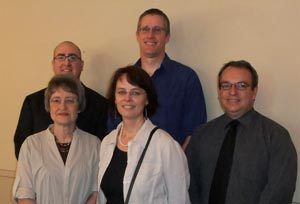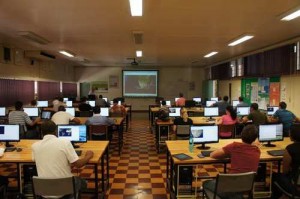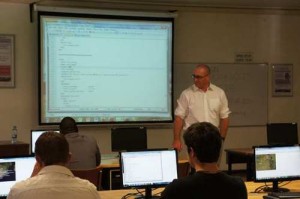It is our great pleasure to share the excellent development of the American Geographical Society’s endorsement of the “Geo for All Initiative”, developed by the International Cartographic Association (ICA) and the Open Source Geospatial Foundation (OSGeo). “Geo for All” aims to provide expertise and support for the establishment of Open Source Geospatial Laboratories and Research Centers across the world for supporting development of open-source geospatial software technologies, training, and expertise.
Established in 1851, the American Geographical Society http://americangeo.org is the oldest professional geographical organization in the United States. It is recognized world-wide as a pioneer in geographical research and education in geography for over 163 years. The mission of AGS is to advance geographic knowledge and the recognition of its importance in the contemporary world. AGS promotes the use of geography in business, government, science, and education with a goal to enhance the nation’s geographic literacy so as to engender sound public policy, national security, and human well-being worldwide. AGS is the only organization focused on bringing together academics, business people, those who influence public policy (including leaders in local, state and federal government, not-for-profit organizations and the media), and the general public for the express purpose of furthering the understanding of the role of geography in our lives. AGS provides leadership to frame the national discussion of the growing importance of geography and geo-spatial tools. The Society maintains its headquarters in Brooklyn Heights, New York.
More details at http://americangeo.org/7142015-american-geographical-society-announces-endorsement-of-the-geo-for-all-initiative/
This endorsement from the American Geographical Society comes at an important phase in our development. We crossed our 100th lab milestone last week with UCL as our 101st Open Source Geospatial Lab bringing together staff and students from the Department of Civil, Environmental and Geomatic Engineering, the Centre for Advanced Spatial Analysis, the Department of Archaeology and the Department of Geography at UCL . Details at https://www.ucl.ac.uk/gis/OSGeo
Last week at Como in Italy at FOSS4G-Europe http://europe.foss4g.org/2015/ , our colleagues met to discuss our future expansion plans in particular for discussing GeoForAll expansion to thousands of schools globally and expand our teacher training initiatives with collaboration from governments , industry and universities globally.
This endorsement from the American Geographical Society is a great boost to all our “Geo for All” colleagues worldwide. “Geo for All” started from nothing and it is 100 percent the efforts of all our colleagues from OSGeo, ICA and ISPRS who joined together on a common education mission that made this all possible. I am grateful to each and every colleague for their hardwork and dedication for our mission for building a better world and better future for all our future generations.
This is just the start and we look forward to working with all for making education and opportunities accessible to all.
Best wishes,
Suchith Anand
http://www.geoforall.org
PS: Thanks to GIS Professional for the “Geo for All” overview article in April 2015



